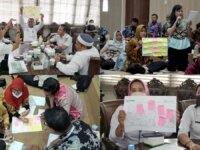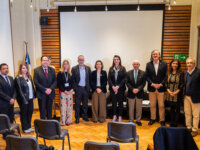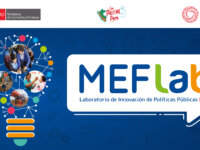Complex government documents may confuse citizens, making it difficult to access services such as pensions or benefits. This work engages GenAI to rewrite these texts in plain language, maintaining legal accuracy while increasing clarity. Focused on the Service Pages of Italy's National Institute of Social Security portal, which serves 45 million users, AI surpassed human experts in user preference, enabling the Institute to communicate inclusively and at scale.
Case Study Library
Where innovations are collected and shared to disseminate and replicate good ideas

Innovations:
0
This website, as well as any data and map included herein, are without prejudice to the status of or sovereignty over any territory, to the delimitation of international frontiers and boundaries and to the name of any territory, city or area.
The program offers an online Human Rights course for civil servants with modules from 15 Public Administration entities. It includes initial and final webinars featuring the Ombudsman and three civil society associations, respectively. Graduates propose initiatives to implement Human Rights, fostering a "Network of Ambassadors for the Promotion of Human Rights in Public Administration." A Best Practices Guide will highlight implemented projects.
The study integrates Artificial Intelligence (AI) techniques, and a digital twin methodology to process and interpret urban data streams derived from citizen interactions with the city's coordinate-based problem mapping platform. Using an interactive GeoDataFrame within the digital twin methodology, dynamic entities facilitate simulations based on various scenarios, allowing users to visualize, analyze, and predict the response of the urban system at
Futures and foresight methods are fundamental tools to inform decision-making and public policy in order to consider a wide range of future possibilities. The creation of a Latin American Future Network seeks to articulate existing efforts from many countries and enhance capacity building in the region, since capacities are still not well developed. This will benefit citizens by improving public sector services and future-proofing policies aimed at the population wellbeing.
The UNDP in Ukraine training on a human rights-based approach in public policy design helped public servants who are involved in the digitalisation sphere learn how to develop state policies and electronic services based on principles of human rights and gender mainstreaming. It helped them dispel myths and learn the basic requirements, which resulted in more inclusive public services developed for Ukrainian citizens.
13 Fellows from 10 different African countries in 8 institutions of the African Union to build a culture of digital innovation: the AU Digital and Innovation Fellowship is the first supranational initiative to make administrative processes in the African Union more user-centred and effective. The challenge: 12 months to integrate innovation into the African Unions processes and products. The results: 11 products in diverse AU institutions and units. And that is just the start!
Case Study
Thematic Innovation Clinic to improve the quality and quantity of public service innovations

Thematic Innovation Clinic was implemented to encourage and increase number and quality of innovations in Pontianak City. This program succeeded in increasing the number of innovations within the Pontianak City Government to 165 innovations in 2022, and to 196 innovations in 2023. With a design thinking approach, the innovation clinic increases the number of innovations, fosters the spirit and culture of innovation, and cross-party collaboration to deliver optimal public services to community.
In the U.S. government, community members have experimented with designing the government services they will use. Their lived experience improves service outcomes, builds better relations with the government, and creates greater ownership over the service. This is new; normal participatory design of government services just includes community members for certain activities at certain points, never throughout, and never allowing the community to lead and frame the project or choose methodologies.
Zaragoza City Council has launched a new electronic citizen participation platform with the aim of involving its citizens in public policy decisions and in the design of its services. It provides an interactive space for residents to actively contribute, strengthening the collaboration between the administration and the community, thus fostering a more inclusive and transparent management.
In Peru, the lack of systematic evidence hinders efficient budget allocation and innovative public policy. The MEFLab addresses this by conducting experimental evaluations of programs and policies that benefit the Peruvian Ministries and the citizens through improved public services. The lab's innovation lies in using existing evidence, creativity, and collaboration to design new public policy solutions and promote evidence-based decision-making.





